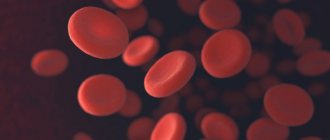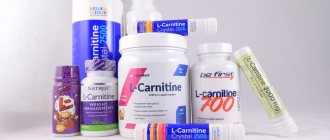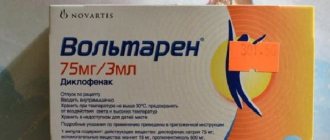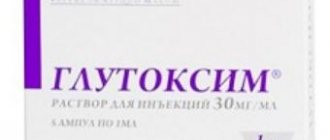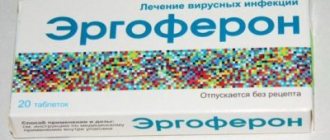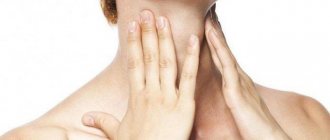Description
The drug is valued for its safety and is recommended for first aid in critical and comatose conditions.
Table 1 - General information about the medication
| Name | L-lysine aescinate |
| Latin name | L-lysine aescinate |
| Active substance | Escin |
| Manufacturer | PJSC "Galichfarm" |
| A country | Ukraine |
The medication is a colorless or straw-colored liquid intended for intravenous infusion.
Release form and composition
L-lysine escinate is a combination drug. Contains the plant component escin (horse chestnut saponin) and the amino acid L-lysine. Available in ampoules with a break point of 5 ml. Ten glass containers are packaged in two blisters, which, together with the annotation, are placed in a cardboard box.
Table 2 - Composition of the drug
| Components | Content mg/1 ml |
| L-lysine aescinate | 1 |
| Ethyl alcohol 96% | 200 |
| Purified water | To bring up to 1 ml |
| Propylene glycol | 200 |
Compound
active ingredient:
escin salt of 2,6-diaminohexanoic acid;
1 ml of solution contains escin salt of 2,6-diaminohexanoic acid, calculated as 100% substance 1.0 mg;
Excipients:
ethanol 96%, propylene glycol, water for injection.
Dosage form.
Injection.
Basic physical and chemical properties:
transparent colorless liquid.
Pharmacotherapeutic group.
Vasoprotectors. Capillary stabilizing agents. Other capillary stabilizing agents. Code ATX С05С Х.
pharmachologic effect
L-lysine escinate in ampoules produces a decongestant (antiexudative) effect, eliminates tissue compression, and accelerates the resorption of lesions. The drug slows down the secretion of lysosomal enzymes, thereby inhibiting the breakdown of carbohydrate-protein complexes (mucopolysaccharides), normalizes the pressure inside the capillaries, and increases the tone of the venous walls.
Interesting! By reducing the permeability of blood vessels and the plasma-lymphatic barrier, the substance prevents the development of an exudative reaction (sweating of the liquid part of the blood through the walls of the arteries), produces a diuretic effect and increases the trophism (nutrition) of the connective tissue.
In addition to the anti-edematous effect, the drug eliminates inflammation and relieves traumatic pain. The product also has an immunomodulatory effect, suppresses a stress-induced increase in plasma sugar concentration, prevents the occurrence of acidosis (increased blood acidity) and worsening tissue damage.
Pharmacological properties of the drug L-lysine escinate
It has anti-inflammatory, anti-exudative (decongestant) and associated analgesic effects. Escin, inhibiting the activity of lysosomal hydrolases, prevents the breakdown of mucopolysaccharides in the walls of capillaries and the surrounding connective tissue, normalizes increased vascular-tissue permeability, and exhibits anti-edematous, anti-inflammatory and analgesic effects. Increases vascular tone, and also has a moderate immunocorrective and hypoglycemic effect.
Indications for use
Lysine aescinate is prescribed for postoperative and post-traumatic edema of the spinal cord and brain, soft tissue edema-swelling syndrome, and increased pressure inside the skull. And thanks to the substance’s ability to restore blood circulation, drugs based on it are used in the treatment of vegetative-vascular dystonia, thrombophlebitis, and venous insufficiency.
Indications for the use of Lysine aescinate:
- spinal fractures, inflammatory processes, dorsalgia, non-traumatic skeletal injuries;
- compression-ischemic radiculopathies;
- post-resuscitation and terminal conditions;
- traumatic brain injury;
- poisoning with neurotoxins and poisons;
- respiratory distress syndrome;
- ischemic stroke;
- coma.
In exceptional situations, Lysine escinate is used in emergency neonatology, as well as pediatrics for the treatment of pre- and postnatal injuries, perinatal lesions that threaten severe hypoxia, and the danger of cerebral edema.
Indications
As part of complex therapy for cerebral edema of traumatic, non-traumatic and post-operative origin, including intracranial hemorrhage, increased intracranial pressure and swelling-edema phenomena.
Edema of the spinal cord of traumatic, non-traumatic, postoperative origin.
Liquor-venous disorders in chronic cerebrovascular accidents (CVA) and vegetative-vascular dystonia.
Swelling of soft tissues involving the musculoskeletal system, accompanied by local disorders of their blood supply and pain; swelling and pain syndromes of the spine and limbs; severe disturbances of the venous circulation of the lower extremities in acute thrombophlebitis, accompanied by edematous-inflammatory syndrome.
Contraindications and warnings
According to the instructions, L-lysine escinate has a number of contraindications that limit its use:
- kidney diseases;
- alcoholism;
- liver damage;
- tendency to bleed;
- epilepsy;
- individual intolerance to the components of the solution.
The drug should not be used during pregnancy and breastfeeding. Escin is also contraindicated in children under the age of 18, as it can cause delays in physical and mental development. However, in critical or comatose conditions that can lead to death, the use of the solution is permissible. The decision about the need for such therapy is made by the doctor.
Application Features
In some patients with hepatocholecystitis, when using the drug, a short-term increase in the activity of transaminases and bilirubin (direct fraction) is possible, which does not pose a threat to patients and does not require discontinuation of the drug.
This medicine contains from 0.9 to 1.1 g of ethanol (alcohol) in 1 ampoule. May be harmful to patients with alcoholism. Caution should be exercised when used in children, patients with liver disease and patients with epilepsy.
Use during pregnancy or breastfeeding
.
The use of the drug during pregnancy or breastfeeding is contraindicated. During treatment you should stop breastfeeding.
The ability to influence the reaction rate when driving vehicles or other mechanisms.
At the moment there are no reports, however, when using the drug, the possibility of developing suspected adverse reactions from the nervous system should be taken into account.
Directions for use and dosage
The drug L-lysine escinate is administered only intravenously. Subcutaneous, intramuscular or intra-arterial injections of the concentrate are prohibited.
The standard method of application is as follows: 1-2 ampoules are diluted in 150 ml of saline and injected into a vein using a dropper. In an emergency situation, when it is not possible to install a device for supplying medication, use a regular syringe with a hollow needle. The medicine is slowly injected into the bloodstream, constantly monitoring the patient's condition.
A single dose for infusion is 5-10 ml of concentrate per 150 ml of isotonic solution. For intravenous injection, 1 ampoule is diluted in 10 ml of saline solution. The maximum daily dose in this case is 20-25 ml, which is administered at intervals of 12 hours.
The course of therapy lasts 3-8 days.
special instructions
In conditions that can lead to death, the daily amount of medication for adults is doubled, dividing it into 3-4 administrations. Children's dosage in critical cases is calculated based on age and body weight.
Table 3 - Single single dose for children
| Age, years | Amount of solution mg/kg |
| 1-5 | 0,22 |
| 6-10 | 0,18 |
| 11-15 | 0,15 |
| 15-18 | 0,12 |
Intradrop administration is performed twice a day, diluting the drug with an isotonic solution. Duration of treatment is 2-5 days.
Side effects and allergies
If the medication is used incorrectly or there are unaccounted contraindications, undesirable symptoms may develop in various organs and systems:
- dysfunction of the central nervous system - tremors of the limbs, migraines, dizziness, unsteady gait;
- problems with the digestive tract - increased bilirubin, discomfort in the right hypochondrium, stomach pain, vomiting, upset stool;
- disruption of the cardiovascular system - surges in blood pressure, heaviness behind the chest, arrhythmia.
In case of individual intolerance to the drug, allergic reactions develop: redness of the skin, itching, swelling of the face. People suffering from bronchial asthma experience shortness of breath and cough, and there are signs of bronchial obstruction.
Many patients experience unpleasant sensations when the medicine is administered - skin flushing, a burning sensation along the vein, severe weakness, chills.
Side effects
Allergic responses:
- fever;
- hyperemia and itching of lips, facial skin;
- skin rashes (erythema, petechiae, papules);
- anaphylactic shock;
- hives;
- Quincke's edema.
Nervous system:
- short-term loss of consciousness;
- dizziness;
- ataxia;
- tremor of the limbs;
- migraine headache.
Digestive tract:
- increased ALT, AST, bilirubin ;
- diarrhea syndrome;
- vomit;
- nausea.
The cardiovascular system:
- instability of blood pressure ;
- chest pain;
- cardiopalmus.
Respiratory tract:
- bronchial obstruction;
- dyspnea;
- feeling of lack of air;
- dry non-productive cough.
Other reactions:
- chills;
- severe weakness;
- phlebitis at the injection site;
- burning during the procedure;
- feeling of heat;
- hand pain.
If other negative reactions are registered, it is recommended to discontinue the drug.
Drug interactions
Treatment with L-lysine aescinat can be combined with the prescription of painkillers, anti-inflammatory, and antimicrobial drugs. The medications combine well and mutually enhance each other’s effects.
The only exception is drugs of the cephalosporin group. They can dramatically increase the level of escin in the body, hinder its interaction with protein and provoke adverse reactions.
To normalize the rheological and hemodynamic properties of the body, lysine escinate is recommended to be combined with Rheosorbilact, Gelofusin or Refortan. However, the concentrate should not be used simultaneously with anticoagulants that cause blood thinning and aminoglycosides due to a possible increase in their nephrotoxicity.
L-lysine escinate 0.001/ml 5ml No. 10 ampoules
A country
The country of production may vary depending on the batch of goods. Please check with the operator for detailed information when confirming your order.
pharmachologic effect
L-lysine escinate reduces the activity of lysosomal hydrolases, which prevents the breakdown of mucopolysaccharides in the walls of capillaries and in the connective tissue that surrounds them, and thus normalizes increased vascular-tissue permeability and has an antiexudative (decongestant) and analgesic effect. The drug increases vascular tone and has a moderate hypoglycemic effect.
Indications for use
— post-traumatic and postoperative swelling of soft tissues of various locations; - swelling of the brain or spinal cord of traumatic or postoperative origin; - disorders of peripheral venous circulation, accompanied by edema
Mode of application
The drug is administered strictly IV slowly, usually by drip (intra-arterial administration is not allowed) in a daily dose of 5-10 ml. To prepare an infusion solution of L-lysine, escinate is diluted in 50-100 ml of 0.9% sodium chloride solution. If necessary, the drug can be administered intravenously very slowly. For IV jet administration of L-lysine escinate is diluted in 10-15 ml of 0.9% sodium chloride solution. The drug should not be used without prior dilution. In conditions that threaten the life of the patient (traumatic brain injury, postoperative edema of the brain and spinal cord with symptoms of edema-swelling, large swelling due to extensive soft tissue injuries), the daily dose is increased to 20 ml, divided into 2 doses. The duration of treatment is from 2 to 8 days, depending on the patient’s condition and the effectiveness of therapy. Contraindicated during pregnancy and lactation. Contraindicated in children under 18 years of age.
Interaction
The drug should not be used simultaneously with aminoglycosides due to the possibility of increasing their nephrotoxicity. In the case of recent, prior to the administration of L-lysine aescinate, long-term therapy with anticoagulants, or if simultaneous administration of L-lysine aescinate and anticoagulants is necessary, it is necessary to adjust the dose of the latter under the control of the prothrombin index. The binding of escin to plasma proteins is complicated by the simultaneous use of cephalosporin antibiotics, which can increase the concentration of free escin in the blood with the risk of developing side effects of the latter. The composition of the drug includes ethyl alcohol 96%. It is necessary to take into account the possible interaction of alcohol with other drugs.
Side effect
With individual hypersensitivity to escin in some patients, the following are possible: Allergic reactions: skin rash (papular, petechial, erythematous), itching, hyperemia of the skin of the face, lips, fever, urticaria; in isolated cases - Quincke's edema, anaphylactic shock. From the side of the central nervous system: headache, dizziness, tremor; in isolated cases - ataxia, short-term loss of consciousness. From the liver and biliary system: increased activity of transaminases and bilirubin. From the digestive system: nausea; in isolated cases - vomiting, diarrhea. From the cardiovascular system: decreased blood pressure, increased blood pressure, tachycardia, chest pain. From the respiratory system: isolated cases - a feeling of lack of air, shortness of breath, broncho-obstruction, dry cough. Local reactions: burning along the vein during insertion, phlebitis, pain in the arm. Other: general weakness, chills, fever.
Contraindications
- severe renal dysfunction; - severe liver dysfunction; - bleeding; - children under 18 years of age; - pregnancy; - lactation period; - hypersensitivity to L-lysine escinate and/or other components of the drug.
Overdose
Symptoms: fever, tachycardia, nausea, heartburn, epigastric pain. Treatment: symptomatic therapy.
special instructions
In some patients with hepatocholecystitis, when the drug is prescribed, a short-term increase in the activity of transaminases and bilirubin (direct fraction) is possible, which does not pose a threat to patients and does not require discontinuation of the drug. The concentrate for the preparation of a solution for intravenous administration contains 23.8% ethanol by volume, that is, up to 2.4 ml of ethanol in a single dose and a maximum of 6.1 ml/day, which corresponds to 122 ml of beer or 50.8 ml of wine per day. The drug should be prescribed with caution in cases of alcoholism, as well as in patients with liver disease and epilepsy. Effect on the ability to drive vehicles and operate machinery The use of the drug may affect the ability to drive vehicles and operate machinery, but due to the severity of the injuries for which use is indicated, this factor is usually not significant.
Dispensing conditions in pharmacies
On prescription
Overdose
If the drug is administered according to the instructions, there is no danger of overdose. If the recommendations are not followed or the course of therapy is exceeded, unpleasant symptoms may appear:
- feeling of heat;
- nausea;
- dizziness;
- frequent urination;
- heavy menstruation;
- tachycardia.
If signs of overdose occur, you should report them to your doctor or other healthcare professional. The specialist will adjust the treatment regimen and prescribe symptomatic treatment to eliminate discomfort.
Reviews, advantages and disadvantages
To leave a review, fill out the special form below:
| Leave feedback | |
| 1 2 3 4 5 | |
| Send Cancel | |
Send your review
Lysina aescinat
Average rating: Number of reviews: 0
According to reviews from doctors and patients, L-lysine escinate is the best medicine for restoring homeostasis in the body, as well as pain relief after injury or injury.
Pros:
- quick results;
- good decongestant and analgesic effect;
- venotonic effect;
- elimination of asthenoneurotic syndrome;
- no change in blood pressure.
Minuses:
- the drug has side effects.
Price and where to buy
L-lysine escinate can be bought at any pharmacy or ordered online. On the Zdravcity website the drug is sold at a very affordable price:
L-lysine escinate concentrate d/prig. solution for intravenous injection. 1mg/ml amp. 5.0ml No. 10
from 1474 ₽
Buy
Table 4 - Prices for medicines in other pharmacies in Moscow
| Pharmacy | Cost of 10 ampoules, rub. |
| Planet Health | 1456 |
| ElixirPharm | 1950 |
| Yuteka | 1429 |
| Samson-Pharma | 1726 |
| Doctor Stoletov | 2116 |
| Unifarm | 1223 |
| White medicines | 1521 |
| AptekaA | 2900 |
The average price for a package of L-lysine aescinate in Russia is 1,764 rubles.
